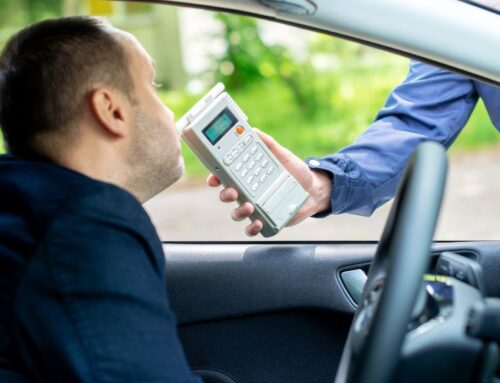What Happens if I Violate a Protective Order in Indiana?
Unsure About What Happens After Violating a Restraining Order in Indiana? We Have Answers.
Legalities make understanding what happens if you break a restraining order in Indiana challenging. Don’t worry—I’ll help! This guide explains what happens if you violate a restraining order. We’ll discuss how fines and jail time may affect your life. Knowing all this helps you make good decisions and avoid disaster.
Legal documents called protective orders or restraining orders safeguard people from violence or harassment. They protect against physical, emotional, stalking, and other harm like a shield.
Quick Summary:
- Protective or restraining orders aim to shield individuals from harm or harassment.
- Violating a restraining order in Indiana can lead to severe consequences, including fines, jail time, probation, and a permanent mark on your criminal record.
- Protective order violations include contacting the protected person, physical proximity, threats or intimidation, third-party contact, property damage, cyberstalking, and refusal to surrender firearms.
- Legal penalties for violating a protective order in Indiana include arrest, fines, jail time, probation, and civil consequences such as lawsuits.
- If you accidentally break a protective order in Indiana, you must act quickly and responsibly, seek legal advice, comply with court orders, and avoid further violations.
What Do I Need To Know About Protective Orders in Indiana?
Understanding protective orders in Indiana can be confusing, especially if you’re involved in a situation where one might be necessary. Here’s a breakdown of the key points:
What is a Protective Order?
To prevent danger or harassment, a court order prohibits someone from approaching you and others. This is often used in domestic violence, stalking, elder abuse, and other situations. How they work:
Someone can request a protective order from a judge if they feel threatened. They must justify their need and prove the threat. If the judge sees a risk, they can impose a protective order.
This order has special rules for the offender. It may force them to avoid the victim, home, school, or workplace. It can also disallow phone calls, messages, emails, and social media contact with the victim.
Who Can File For a Protective Order?
A protection order can be requested by an adult or teen with legal independence who fears physical or emotional harm from the other person. This can be a parent, brother, boyfriend, girlfriend, or other parent of your child.
What Does A Protective Order Say?
It typically orders the respondent (the person being accused) to:
- Stay away from you and specified locations (home, work, school)
- Not contact you in any way (phone, email, social media)
- Surrender any firearms they possess
Protective orders are crucial because they allow victims to legally protect themselves and feel safe. They help them take charge and prevent further injury.
What are Examples of Protective Order Violations?
Violating a restraining order means doing anything that the order specifically prohibits. Here are some common ways someone might violate a restraining order:
- Contacting the Protected Person: This includes calling, texting, emailing, or contacting the protected person through social media platforms. Even indirect contact through friends or family members can be considered a violation.
- Physical Proximity: Approaching or going near the protected person, their home, workplace, or any other place specified in the restraining order.
- Threats or Intimidation: Making threats or engaging in behavior that intimidates or harasses the protected person, even if it’s not direct contact.
- Third-Party Contact: Asking someone else to contact the protected person on your behalf or delivering messages indirectly.
- Property Damage: Damaging the protected person’s property, whether directly or indirectly, can also constitute a violation of the restraining order.
- Cyberstalking: Using technology to track or monitor the protected person’s activities online or offline.
- Refusing to Surrender Firearms or Weapons: If the restraining order requires surrendering firearms or weapons and you fail to do so, it can lead to a violation.
What Will Happen if I Violate a Protective Order in Indiana?
Protective orders are put in place to keep people safe, so breaking them is a mistake. It’s essential to follow the rules of the protective order to avoid getting into trouble with the law. If you break a protective order in Indiana, it’s a serious deal. You could face consequences, like paying fines or even going to jail.
Legal Penalties
The most immediate consequence is facing legal repercussions. This can include being arrested and charged with a criminal offense.
Fines
You may have to pay a fine as a fine. The amount can vary depending on the severity of the violation and the judge’s decision. Fines can range from a few hundred dollars to several thousand dollars.
Jail Time
Breaking a protective order is considered a criminal offense in Indiana. If you’re found guilty of violating the order, you could end up in jail. The length of your sentence will depend on the circumstances of the violation and any previous offenses you might have.
Probation
Instead of or in addition to jail time, the court might place you on probation. This means you’ll have to follow specific rules and conditions set by the court, such as attending counseling or staying away from the victim for a specified period.
Criminal Record
A violation of a protective order can result in a permanent mark on your criminal record. This can have long-term consequences and affect your ability to find employment, housing, or pursue specific opportunities in the future.
Civil Penalties
In addition to criminal penalties, violating a restraining order can result in civil consequences. The protected person may be able to file a civil lawsuit against the violator for damages.
Modification or Extension of the Restraining Order
A court may modify or extend the existing restraining order in response to a violation. This could include imposing stricter terms or extending the duration of the order.
It’s crucial to take protective orders seriously and follow the rules set by the court to avoid facing these penalties. If you’re unsure what to do under a protective order, seeking legal advice is best to avoid unintentionally violating it.
I Accidentally Break a Protective Order, What Should I Do?
If you accidentally break a protective order in Indiana, acting quickly and responsibly is important. Breaking this order can lead to big problems, but knowing what to do next can help. We’ll keep it simple and clear so you can understand and handle things well.
- Stay Calm: It’s important not to panic. Take a deep breath and try to remain calm.
- Stop Contact: Immediately stop any actions that violate the Protective Order. This includes ceasing all communication and avoiding any prohibited locations.
- Seek Legal Advice: Contact a lawyer experienced in handling Protective Order violations. They can guide your options and help you navigate the legal process.
- Appear in Court: If you receive a court summons or notice related to the violation, attend all scheduled court hearings. Failing to appear could worsen the situation.
- Comply with Court Orders: Follow any instructions or orders issued by the court regarding the violation. This may include attending counseling or other requirements.
- Document Everything: Keep records of any communication or interactions related to the Protective Order violation. This documentation may be useful in your defense.
- Avoid Further Violations: Make sure to strictly adhere to the terms of the Protective Order going forward to prevent additional violations and legal consequences.
- Consider Counseling: If appropriate, seek counseling or therapy to address any underlying issues that may have contributed to the violation.
- Stay Informed: Stay updated on any changes or developments in your case by maintaining communication with your lawyer and following court proceedings closely.
- Take Responsibility: Accept responsibility for your actions and demonstrate genuine remorse. Cooperation and willingness to comply with legal requirements can work in your favor during court proceedings.
Breaking a protective order in Indiana can be a serious matter, but by taking the right steps and seeking appropriate help, you can navigate through it.
Explore the Legal Consequences of Breaking a Protective Order in Indiana
Breaking an Indiana protective order is serious and punishable. But if you’re lost or stuck, help is available. Wilson & Kinsman LLC can help you through this. Knowing that asking for legal guidance when unsure can make a significant impact. Understanding the gravity of the situation and seeking support can prevent further issues and protect your future.
If you’re accused of breaking a protective order in Indiana, involved in a personal injury case, a victim of domestic battery, charged with a drug crime, and more, do not hesitate to reach out to us. Learn what you can do legally to handle your situation better and protect yourself.
Share This Story, Choose Your Platform!
Give us a call!
Testimonials
Read what our former clients have to say:







